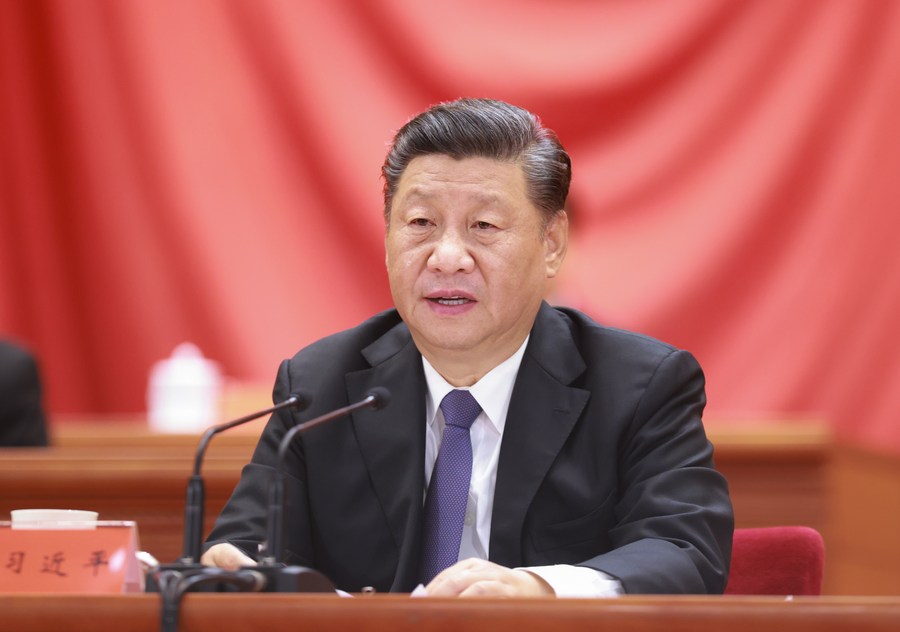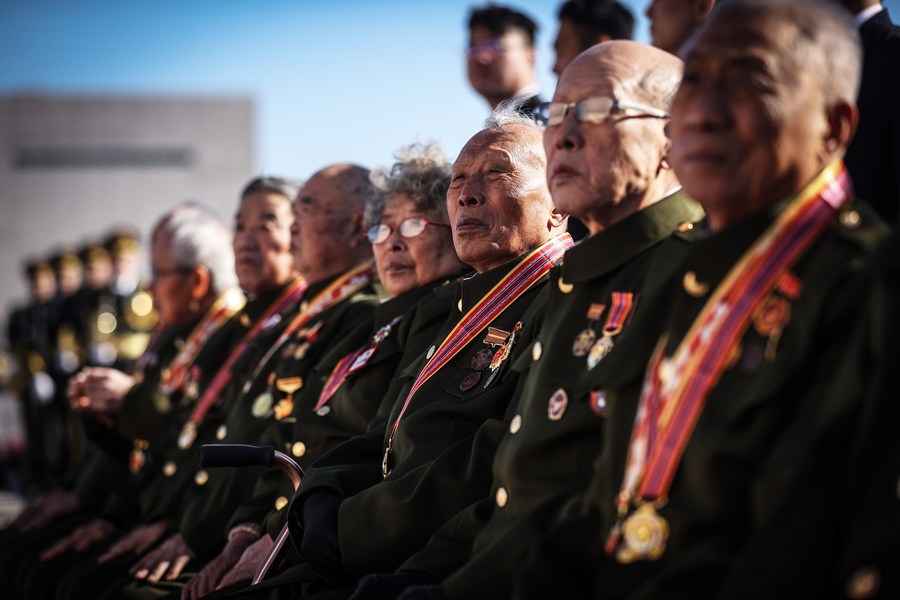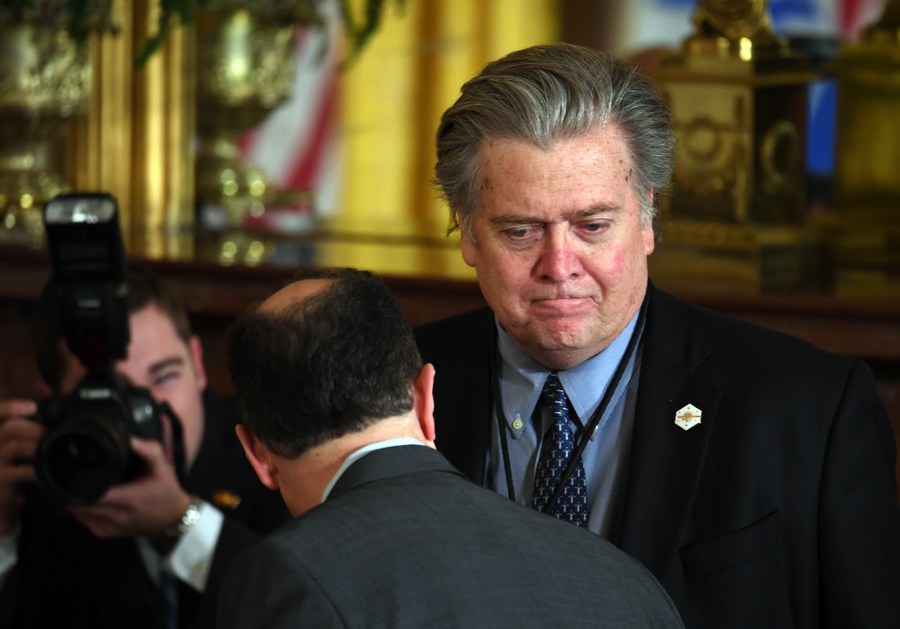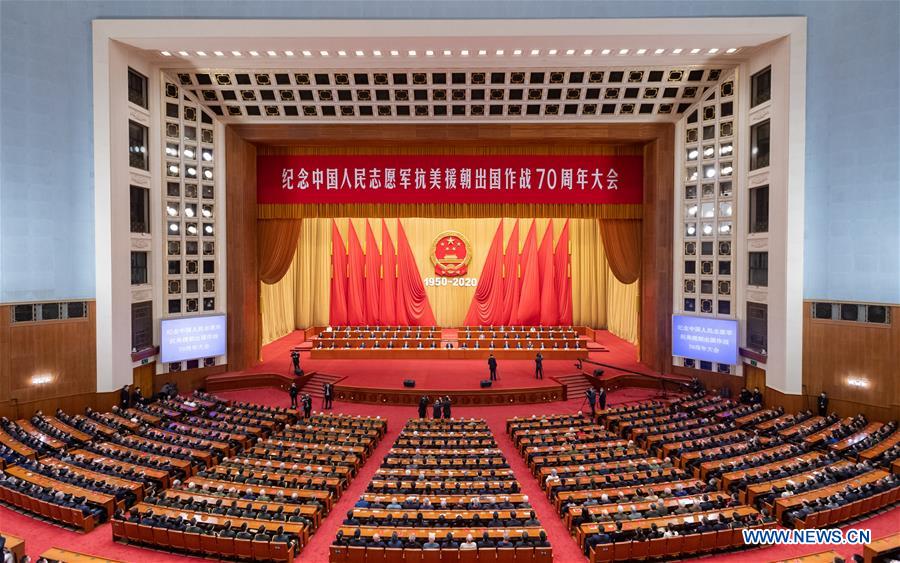
Chinese President Xi Jinping, also general secretary of the Communist Party of China Central Committee and chairman of the Central Military Commission, addresses a meeting marking the 70th anniversary of the Chinese People's Volunteers entering the Democratic People's Republic of Korea to fight in the War to Resist U.S. Aggression and Aid Korea, at the Great Hall of the People in Beijing, capital of China, Oct. 23, 2020. (Xinhua/Ding Lin)
-- Xi called the war victory "a declaration that the Chinese people have stood firm in the East, and an important milestone in the Chinese nation's march toward the great rejuvenation."
-- "It is necessary to speak to invaders in the language they know: that is, a war must be fought to deter invasion, and a victory is needed to win peace and respect," Xi said.
-- "In today's world, the pursuit of unilateralism, protectionism and extreme egoism leads nowhere," Xi said, adding that blackmail, blockages and the application of maximum pressure on others also lead nowhere.
BEIJING, Oct. 23 -- Chinese President Xi Jinping on Friday stressed promoting the spirit forged in the War to Resist U.S. Aggression and Aid Korea (1950-1953) and pooling mighty strength for realizing national rejuvenation.
Xi, also general secretary of the Communist Party of China (CPC) Central Committee and chairman of the Central Military Commission, made the remarks while addressing a high-profile meeting in Beijing to commemorate the 70th anniversary of the Chinese People's Volunteers (CPV) entering the Democratic People's Republic of Korea (DPRK) to fight in the war.
The meeting was presided over by Li Keqiang and attended by other senior leaders: Li Zhanshu, Wang Yang, Wang Huning, Zhao Leji, Han Zheng and Wang Qishan.
MILESTONE VICTORY
Eight months after the founding of the People's Republic of China, the Korean War broke out in June 1950. The flames of war soon reached the border river of Yalu, and U.S. planes repeatedly bombed northeast China's border regions, causing casualties and property losses and seriously endangering China's security.
On Oct. 19, 1950, as requested by the DPRK, CPV forces crossed the Yalu River to aid the DPRK's fight there until a truce was signed in 1953.
It was a time when New China was still poor, with unfavorable weapons and weak air and navy forces. But the United States, which led the rival forces in the war, had much greater military power.
Calling the CPV entering the Korean front in the War to Resist U.S. Aggression and Aid Korea a just move of an army for justice, Xi lauded the great patriotism demonstrated by them.
Xi said all those who had contributed to the victory of the war have never been forgotten.













